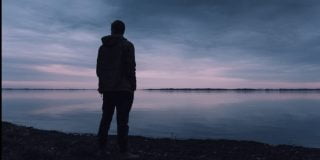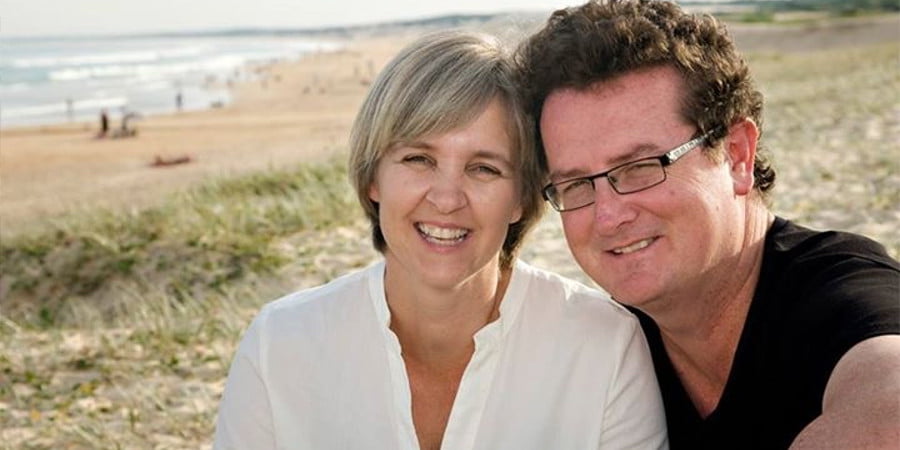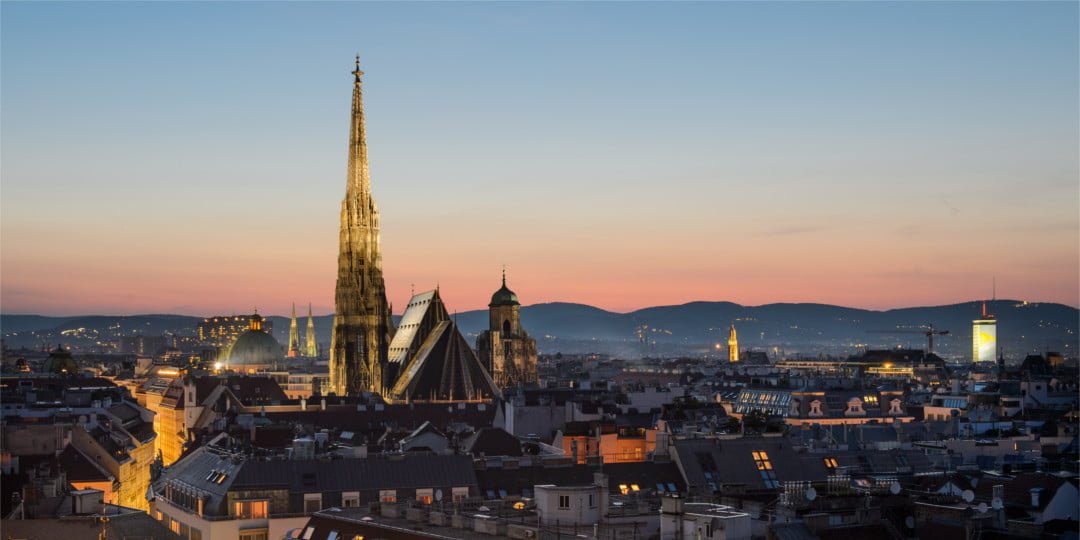In February 2011 I walked into my doctor’s rooms to be told I have Parkinson’s disease- that over time I will lose the ability to control my body. At forty five years of age I was young to be diagnosed. There is no cure.
For years I have wondered about the role of God when the world doesn’t function as it should. I have debated, theologised and speculated. Now the questions are much more personal. Did God will me to contract Parkinsons? If so, why? If not, where is God in this?
The questions I’m asking about my disease are the same ones I ask about natural disaster. Where was God when that devastating wave drowned the coastline of Aceh on Boxing Day in 2004? When buildings collapsed in Haiti on January 12, 2010? When fires swept the Victorian countryside on February 7, 2009?
I don’t have answers to all my questions. Are all things ultimately willed by God as some theologians claim? Does God permit evil things and then work them into his plan? Is the freedom granted to us and creation such that God cannot prevent its exercise? I am not sure of the answer to these questions, but one thing I do know is that in a sinstained world things go wrong. Bad things happen and they happen to people who don’t deserve it and they happen without any apparent rhyme or reason. Indeed, is that not the nature of sin and evil, to bring chaos and disorder to that which God made good?
This leaves me identifying with Job from the Old Testament. He loses his wealth to thieves, his children to natural disaster and his health to disease. His friends, arriving to comfort him, have it all figured out. Their theology provides neat, simple answers. All things come from the hand of God to either reward us for the good we have done or punish us for the evil we have perpetrated. Job, they conclude, must have done something terribly bad and he needs to repent.
But for Job it doesn’t add up. He shares their theology but finds it no longer explains the world. He hasn’t done evil, so why is God pursuing him? He is painfully confused and demands God appear and explain himself. At the close of the book God does appear, but Job doesn’t get the explanation he seeks. He never discovers why these tragedies have befallen him. Rather he learns that God, whose knowledge and power are infinitely greater than his, governs the universe with wisdom, even if Job can’t figure it out.
I don’t know why I have Parkinsons or why the Tsunami hit Aceh. Indeed, it may well be there is no higher purpose to explain them. What I do know is not an answer, but a person. God. Revealed to me through Jesus. Good. Wise. Loving. Graceful. Kind. Trustworthy.
This God is an incarnate and crucified God, a God who entered our world and experienced the mundane realities of evil. Jesus started life as a refugee fleeing a brutal tyrant who wanted to kill him. He was slandered by his opponents; abandoned by his friends; mocked and beaten by his captors and executed in the most humiliating and painful way.
Yet these things don’t signal the absence of God. As evil heaped its banalities high, God was there in Christ, meeting violence with non-violence; hatred with love; evil with forgiveness. So often I rationalise that if evil is present, God must be absent, and vice versa. But doesn’t the incarnation of Jesus suggest otherwise? Does it not remind me that when evil reached it’s pinnacle, God was present crying “Father, forgive them”?
What does this mean when a tsunami strikes or a brain like mine stops producing sufficient dopamine? If the tsunami and the physical impairment are signs that I inhabit a chaotic, sin-stained world, what is the sign that God is with me in that world? In my experience God makes his presence known by giving himself to me as someone to whom I can cry out in protest. Like the Psalm writers I begin with lament and end with the fresh realisation that I have not been orphaned but am a beloved child of God. I see the fingerprints of God in the rising sun and the cooling breeze that followed my diagnosis, signs that there is more order in the universe than chaos, an order that speaks to me of a good Creator. And in my experience the love of God comes to me through the love of others. When I shed tears with another, feel their reassuring embrace, am strengthened by their wisdom, are they not the tear-ducts of God, the arms of Christ, the voice of the Spirit?
And my God is not only the crucified God. My God is also the risen God, the God of hope. The New Testament declares that what happened to Christ will happen to me. I too will be raised to a new life, in a new body, a member of a renewed human community, dwelling with God on a new earth. It’s an audacious hope, but a hope that informs how I face the future. My decaying body is not the final word. Ahead of me lies a new body and a new world.
It is the same resurrection hope that informs how I face disasters. I can’t speak for those who have suffered from a natural disaster, but as I ask where God is when disaster strikes, my answer is that my God is not only the God of suffering, empathetic love, but the God who will not surrender us or our world to the forces of chaos and disorder. The resurrected God will remake our lives and our world. A day will come when tsunami and earthquake will be no more, when “there will be no more mourning or crying or pain, for the old order of things has passed away.”
The God I worship has not surrendered to chaos, nor is he its architect. When events overwhelm me, he can be difficult to find. But he remains the incarnate, crucified God, who never abandons me, but is always present, responding to chaos with long-suffering love. And my God is the resurrected God, whose deep love for humankind and creation will lead him to bring an end to disaster once and for all. When disasters strike, whether the disease that ruins bodies or the earthquake that brings down buildings, there are many questions about God that I can’t answer.
The answer I possess is a person. The crucified and risen God.
First published in Baptist World Aid’s Be Change magazine. For other articles from this edition see baptistworldaid.org.au/bechange






beautiful, Scott. Thanks. Well put.
Thanks Ralph
Some events which cause bad things to happen, also cause good things – same event, same time. A surfer on a wave is having a good time, but that same wave washes a fisherman off the rocks and he drowns. Where’s the evil? There is none – it’s just an event that had a bad outcome. The tsunami was a natural, predicted outcome of geological events that make the world the beautiful habitable planet that it is. No evil, just big processes and little humans not getting out of the way.
Not sure how your Parkinison’s fits into things though.
Thanks Scott, saddened to learn of your Parkinson’s, but always encouraged whenever I read your posts and always encouraged to see my brother going on strong in the Lord though our paths cross over little these days.
Dick, I think you’ve missed a point. If you are going to argue that a Tsunami is a natural outcome, then why aren’t you prepared to concede that Scott’s Parkinson is also a natural outcome? Or again, if there is a creator, then why did the creator create a world that can naturally cause so much pain, suffering – when little humans don’t get out of the way? I’d submit that they are all evidence of a ‘fallen’ universe. A universe that is living with the consequence of rebellion against God.
Thanks Tom,
We really ought to catch up over a beer sometime soon.
Agree with your response to Dick
The universe has been going for 13.5 billion years, earth for 4.5 billion, and Homo Sapiens for only 0.2 million. Biblical scholars have dated the rebellion in the Garden of Eden at only 6,000 years ago. To attribute the fallen universe to that rebellion is surely absurd, with respect.
I’m with Dick on this one!
Well Sandra, there’s a first time for everything!
I guess Tom, that I do see disease as a natural outcome of events, certainly not as punishment, that’s for sure (though I know that’s not Scott’s view either).
I struggle with the notion that coz things don’t work out the way we want (sickness, death) it’s a sign of a fallen world. I recognise it’s easy for me to say that – I chose my parents very well, I’ve had a pretty cruisey run thus far – I appreciate that, believe me.
But I can’t see sin manifest in natural processes. I see it in human abuses of fellow humans, and of nature. The planet is perfect – or at the very least it’s totally adequate for us humans to live in peace and harmony with it and with each other. But we choose actively to stuff it up, and each other in the process.
Disease I think is the result of one of two things:
– the dynamic struggle of all living things to get on in life, be they bacteria, virus or great white shark, and sometimes that means one has a go at another – but never with malice;
– and the human body’s reaction to the forces of nature that also sustain us – here I refer to the process of ageing and DNA damage through exposure to solar radiation, etc.
Scott, you say, “there are many questions about God that I can’t answer”. I said this too, when I was a Christian. Too many unanswerable questions left me with a God I could not understand, who was so at odds with my sense of what is fair, just, ethical, compassionate, responsible, loving, merciful, helpful, fatherly, etc, that my love for him withered for lack of any nurturing, guidance or enlightenment.
Now that I am a parent, I realise even more that “you wouldn’t understand, you’re too little, you’ll just have to trust and obey me, stop asking why” is totally inadequate an answer to give any child. I try to explain things in a way they can understand. I especially would never withhold an explanation if my child is hurting and I have the capacity to help, but choose not to. “This will teach you lesson in personal responsibility” might be valid for some very minor self-inflicted hurts, but beyond that a non-interventionist parent would be considered negligent, or at best irrelevant.
Current science favours the theory that the universe had a beginning. Call that creation, or God, fine. But there is no evidence that the God of creation has ever intervened since those ancient natural laws were set in train. Certainly this planet was never a perfect place for human life, it is just adequate. Viruses, cancer cells, mutant genes, mysterious things that cause premature death of dopamine-producing cells, freak accidents, tsunamis, and the human bodies that are ravaged by these things, are all the same to the non-interventionist creator. No one thing gets any special divine treatment – we battle it out alone, with random luck blessing or cursing us rhymelessly, and only human intelligence, evolved over millions of years, to give us the edge from time to time.
Scott, your faith inspires good in you, and will assist you in your journey through Parkinson’s disease. I do not seek to erode what is important for you – it seems from your writings that your beliefs are firmly cemented anyway – but because you put your faith out there openly in the public arena, I assume you are inviting comments that don’t necessarily concur with your views. Thank you for providing this forum.
I’m not one that will burden you with unwanted prayers for your Parkinson’s, but I do feel for you, and hope that a random stroke of luck, or advances in modern medicine, will come your way and bring you relief. All the best.
THE CATALYST 3.6.’16 Andris Heks, Blue Mountains NSW
Christianity is the biggest world religion with 2.2 billion adherents, constituting 31.50% of all religious people. https://en.wikipedia.org/wiki/List_of_religious_populations.
So what is Christ’s secret?
It is perhaps, that He is the most popular Catalyst who has ever walked on this Earth.
Catalyst is defined as :
‘An agent that stimulates or precipitates a reaction, development, or change’ that ‘takes part in the reaction but remains chemically unchanged by it.’
http://www.thefreedictionary.com/catalyst
The term derived from Greek καταλύειν, meaning “to annul,” or “to untie,” or “to pick up.” https://en.wikipedia.org/wiki/Catalysis
Because catalysts are not consumed in the catalyzed reaction, they can continue to catalyze the reaction of further quantities of reactant.
This is maybe how Christ has continued to gain ever more followers since his death some 2016 years ago. He died physically but remained alive eternally-this is how as a Catalyst agent, He remained unchanged. And he promised eternal life to his followers too. He told them that they will attain eternal life by loving God with all their heart, soul, strength and mind and their neighbors as themselves. Luke 10:25-28.
It is the act of such discipleship that has brought about fundamental, ‘chemical change’-like reactions in them. He made it clear that it was necessary for them to love their neighbors to love God fully. And he also made it clear through what kind of neighborly love they would love God.
Matthew 25:35-40 New International Version (NIV):
35 For I was hungry and you gave me something to eat, I was thirsty and you gave me something to drink, I was a stranger and you invited me in, 36 I needed clothes and you clothed me, I was sick and you looked after me, I was in prison and you came to visit me.’37 “Then the righteous will answer him, ‘Lord, when did we see you hungry and feed you, or thirsty and give you something to drink? 38 When did we see you a stranger and invite you in, or needing clothes and clothe you? 39 When did we see you sick or in prison and go to visit you?’
40 “The King will reply, ‘Truly I tell you, whatever you did for one of the least of these brothers and sisters of mine, you did for me.’ (My italics.)
Here is Christ saying this just before he was arrested and crucified. He was aware of the agony of his approaching crucifixion.
He knew he would be thrown to jail and no one could visit him.
He knew he would be starving as he carried his cross, his throat burning with thirst as he hung on it and that he would be given vinegar to finish him off. He knew that he would be made into a totally humiliated stranger in his own land whom no one could invite into his home and he knew that no one would help him as he was getting violently ill on the cross.
He was innocent but took on humanity’s crimes and had himself crucified in place of the rest in order to spare humanity from punishment for their crimes, such as hating, maiming, killing, enslaving or otherwise abusing one another. He cleaned the slate to give a chance for humanity to start again with a crime-free life. And what does he want us to do to repay him for this sacrifice? Not for us to show compassion for Him. Rather, for us to take care of the hungriest, the thirstiest, the freedom deprived, the most voiceless and the sickest of our fellow beings.
So Christ engages in the deepest of altruism: not only does He give his life on Earth for us, but also wanting us to express our gratitude to Him through taking care of the ‘least’ of our brothers and sisters.